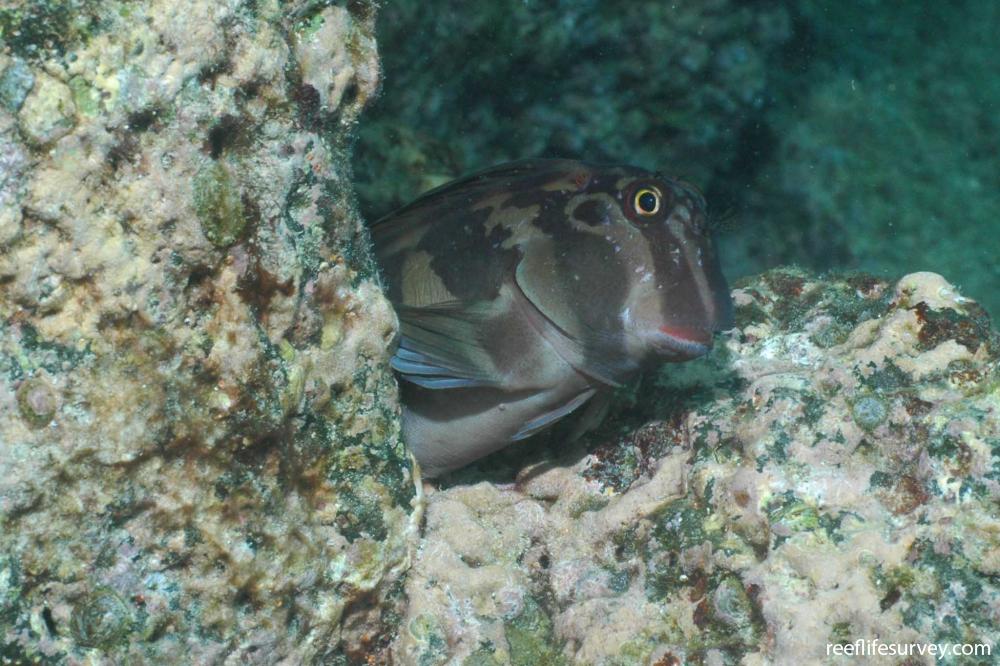Ophioblennius steindachneri
Large-banded blenny | Panamic Fanged BlennySame Genus
Distribution
Tropical Eastern Pacific
Description
Large brown blenny with a blunt squarish head, light bars on head and fore-body, with a broad bar behind pectoral fin, bars sometimes continuing along entire body and a light edged dark spot behind eye. Dorsal and tail fins with a red or orange margin. Lives in crevices and holes in the surge zone of reefs, darting out to defend it\'s territory.
Information
Max Size: 18 cm
Sea Temperature Range: 20.8-30.2°C
Depth: 0-18m
Habitat Generalization Index: 29.2
Also referred to as the SGI (Species Generalisation Index), this describes the habitat niche breadth of the species. Species with values less than 15 are found in a relatively narrow range of reef habitat types (specialists), while those over 25 may be found on most hard substrates within their range (generalists). Learn more here.
Conservation and Rarity
IUCN Status: Least Concern
Occurrence: Widespread (57.7% of sites)
Occurrence describes how often the species is found on surveys within its distribution. It is calculated as the % of reef sites surveyed by RLS divers across all the ecoregions in which the species has been observed
Abundance: Many (16 per transect)
Abundance is calculated as the average number of individuals recorded per RLS transect, where present.
Edit by: Joe Shields











